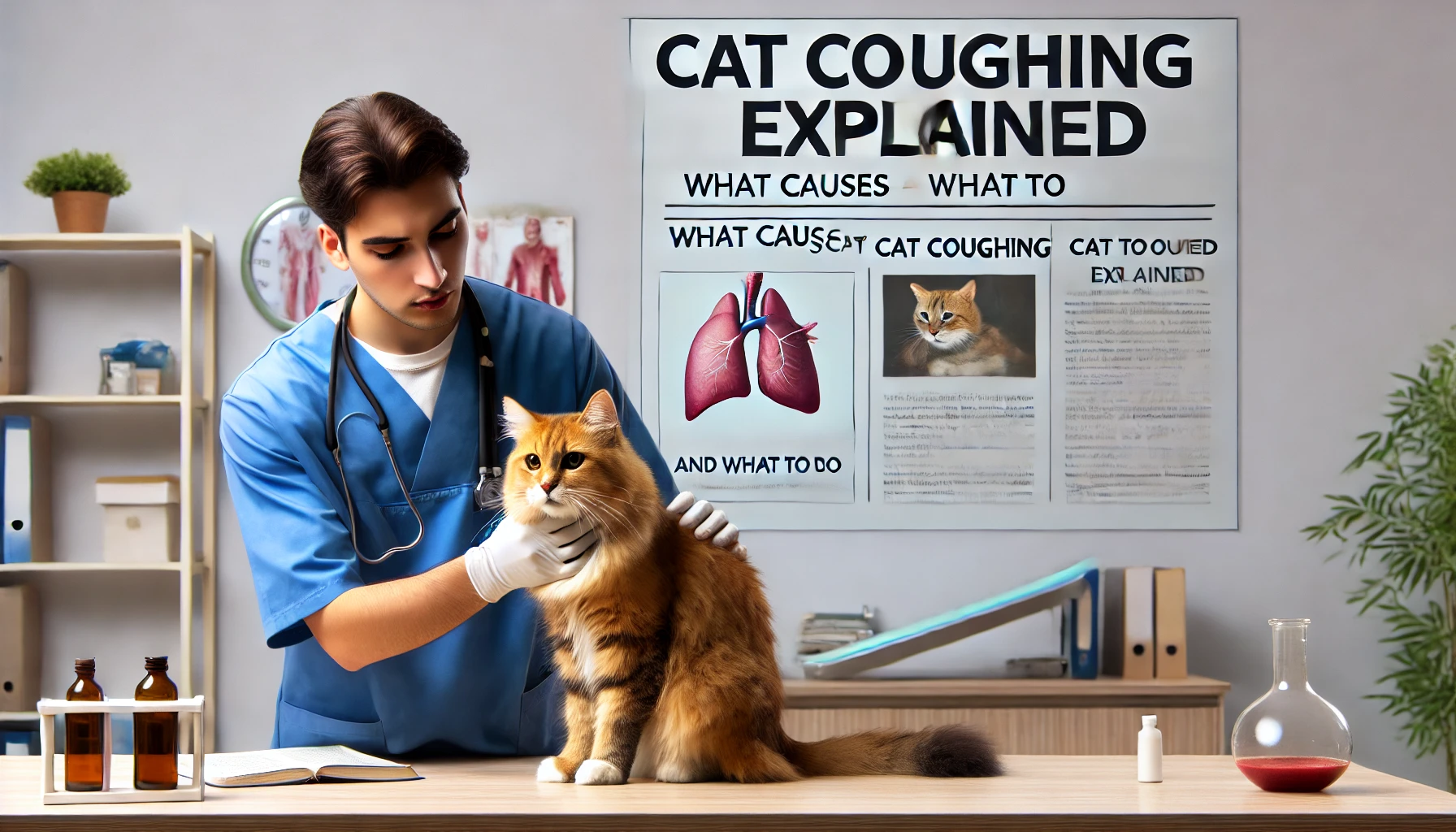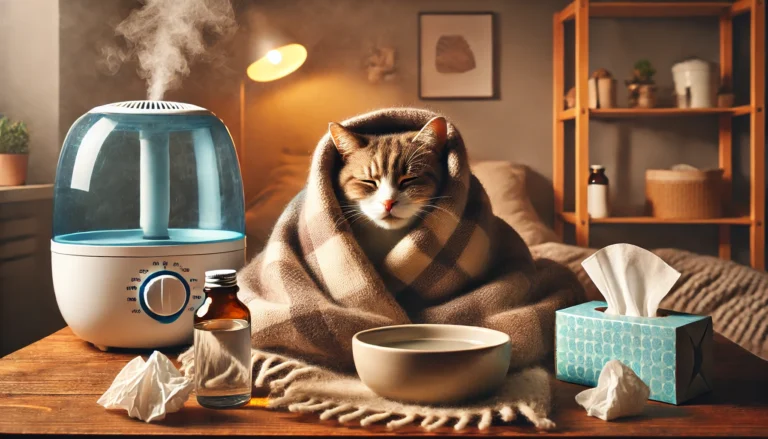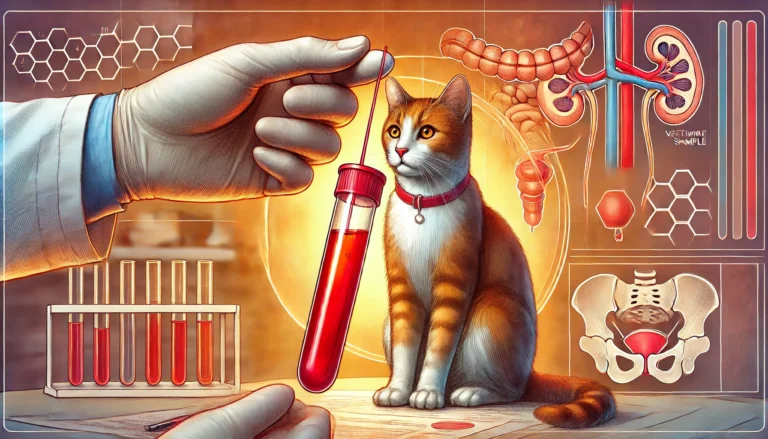What Causes Cat Coughing and What to Do

Understand the Cat Coughing and Solution
Coughing in cats is not just a simple irritation; it’s often a sign of underlying health issues that require careful attention. This comprehensive article will delve into the various causes of cat coughing, appropriate diagnostic methods, effective treatments, and preventive measures to help manage and alleviate this symptom in your feline friends.

Understanding Cat Coughing
Coughing in cats, often described as a hacking or wheezing sound, serves as a protective reflex to clear the airways of mucus, irritants, or foreign objects. Unlike in humans, frequent coughing in cats is uncommon and usually indicative of a health problem.
Primary Causes of Cat Coughing
- Respiratory Infections: Viral and bacterial infections, such as feline herpesvirus, calicivirus, and bacterial secondary infections, often lead to sneezing, wheezing, and coughing in cats.
- Feline Asthma: This chronic inflammatory disease is characterized by coughing, wheezing, and difficulty breathing. Asthma in cats can be triggered by allergens like pollen, mold, dust mites, or household sprays.
- Heartworm Disease: Although more rare in cats than dogs, heartworms can cause a condition known as heartworm-associated respiratory disease (HARD), leading to coughing, wheezing, and respiratory distress.
- Foreign Bodies: Occasionally, cats may inhale small objects that get stuck in their throat or respiratory tract, causing sudden and severe coughing.
- Chronic Bronchitis: Long-term inflammation of the airways can cause persistent coughing along with mucous production.
- Lung Cancer: Although less common, lung tumors can manifest as persistent coughing, often accompanied by other signs like weight loss and lethargy.
Diagnostic Approach to Cat Coughing
Determining the cause of cat coughing involves several steps:
- Veterinary Examination: A thorough physical exam to assess general health and specifically respiratory health.
- Chest X-rays: Essential for visualizing the lungs, airways, and heart; can help identify asthma, bronchitis, heartworms, or tumors.
- Complete Blood Count (CBC): Useful in detecting infections, inflammation, and other underlying health issues.
- Fecal Exam: Checks for parasites that could cause respiratory symptoms.
- Heartworm Test: Especially in areas where heartworm is prevalent, this test is crucial even if preventive medication is regularly used.
Treatment of Coughing in Cats
The treatment will depend on the underlying cause:
- Antibiotics: Used if a bacterial infection is identified.
- Steroids and Bronchodilators: Commonly prescribed for asthma to reduce inflammation and open airways.
- Heartworm Treatment: Very careful treatment as traditional heartworm treatments used in dogs are not safe for cats.
- Surgery: May be necessary to remove foreign bodies or tumors.
- Supportive Care: Includes oxygen therapy, nebulization, or anti-inflammatory medications to support respiratory function.
Managing Cat Coughing at Home
Some strategies can be implemented at home to help manage and reduce coughing:
- Reduce Allergens: Keep your home clean from dust, smoke, and chemical sprays that could trigger coughing.
- Humidifiers: Can help keep your cat’s airways moist and reduce irritation.
- Proper Hydration: Encourage your cat to drink water to help keep the airways hydrated and mucus more fluid.
Preventive Measures
- Regular Veterinary Checks: Ensure your cat receives regular health exams, especially if they have chronic conditions like asthma or heart disease.
- Heartworm Prevention: Consistently administer heartworm prevention as recommended by your veterinarian.
- Vaccinations: Keep your cat up-to-date on all vaccinations, particularly those that protect against respiratory pathogens.
For your information
Coconut oil can be a beneficial addition to your dog’s health regimen when used correctly. It offers various health benefits, from improving skin and coat quality to enhancing digestive health and immune function.
Conclusion of Cat Coughing
Coughing in cats can stem from various causes, each requiring a specific treatment approach. Early detection and intervention are key to effectively managing and resolving coughing in cats. Always consult with a veterinarian if your cat starts coughing, especially if it’s frequent or severe, to ensure proper care and treatment. Through understanding, attentive care, and preventive health measures, you can help maintain your cat’s respiratory health and overall well-being.
How often do cats cough?
Occasional coughing in cats is not unusual, but frequent or chronic coughing is abnormal and warrants a veterinary check.
Why is my cat coughing but nothing comes out?
This could be due to irritation or inflammation in the throat or airways that isn’t severe enough to produce mucus or other substances.
Why is my cat coughing like something is stuck in his throat?
A foreign body, such as a small piece of food or a strand of hair, could be partially obstructing your cat’s throat or airways.
What should I do if my cat is coughing?
Monitor your cat for any other symptoms and consult a veterinarian if the coughing persists or is accompanied by other signs of illness.
Is my cat choking or coughing?
Coughing is usually repetitive and can sound like wheezing or hacking, while choking is typically more acute and distressing, often with frantic behavior.
What does cat asthma sound like?
Cat asthma can sound like wheezing and coughing, often described as a chronic hacking cough that may be mistaken for choking.
Can worms cause a cat to cough?
Yes, certain types of worms, like lungworms or heartworms, can cause respiratory symptoms including coughing.
Is coughing a symptom of worms?
Yes, coughing can be a symptom of certain parasitic infections such as lungworms or heartworms.
What does a cat cough look like?
A cat cough may involve a crouched body posture, extended neck, and a hacking or wheezing sound; it may look like they are trying to expel something from their throat.
What are the signs of worms in cats?
Signs can include vomiting, weight loss, diarrhea, a dull coat, and sometimes visible worms in feces or vomit.
Is cat cough contagious to humans?
Most causes of cat cough are not contagious to humans, but certain infections like those caused by fungal pathogens can be zoonotic.
How to treat a cat’s cold at home?
Provide a warm, comfortable environment, ensure your cat stays hydrated, and use a humidifier to help ease breathing. Always consult a vet if symptoms persist or worsen, as antibiotics may be needed if a bacterial infection is involved.






